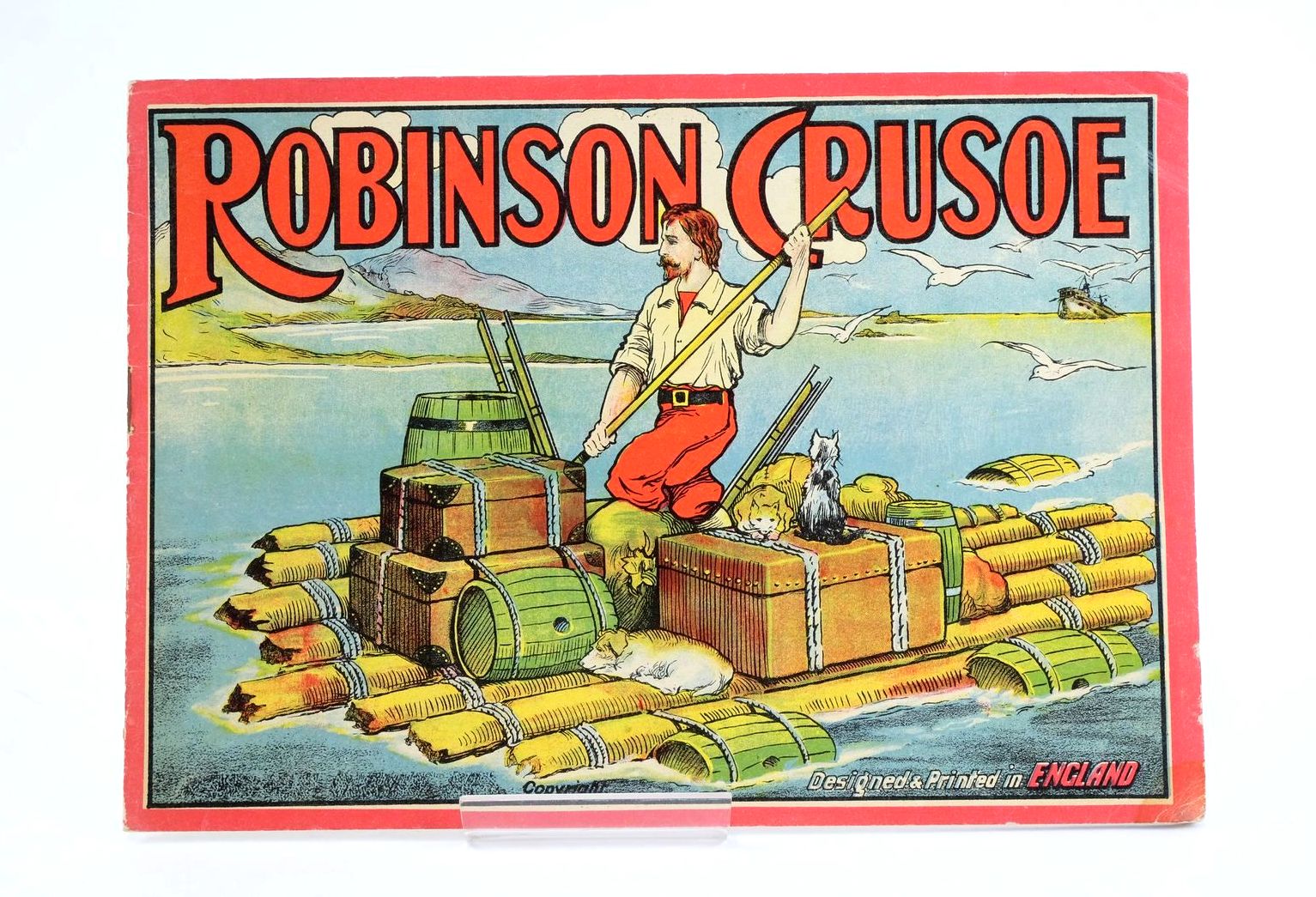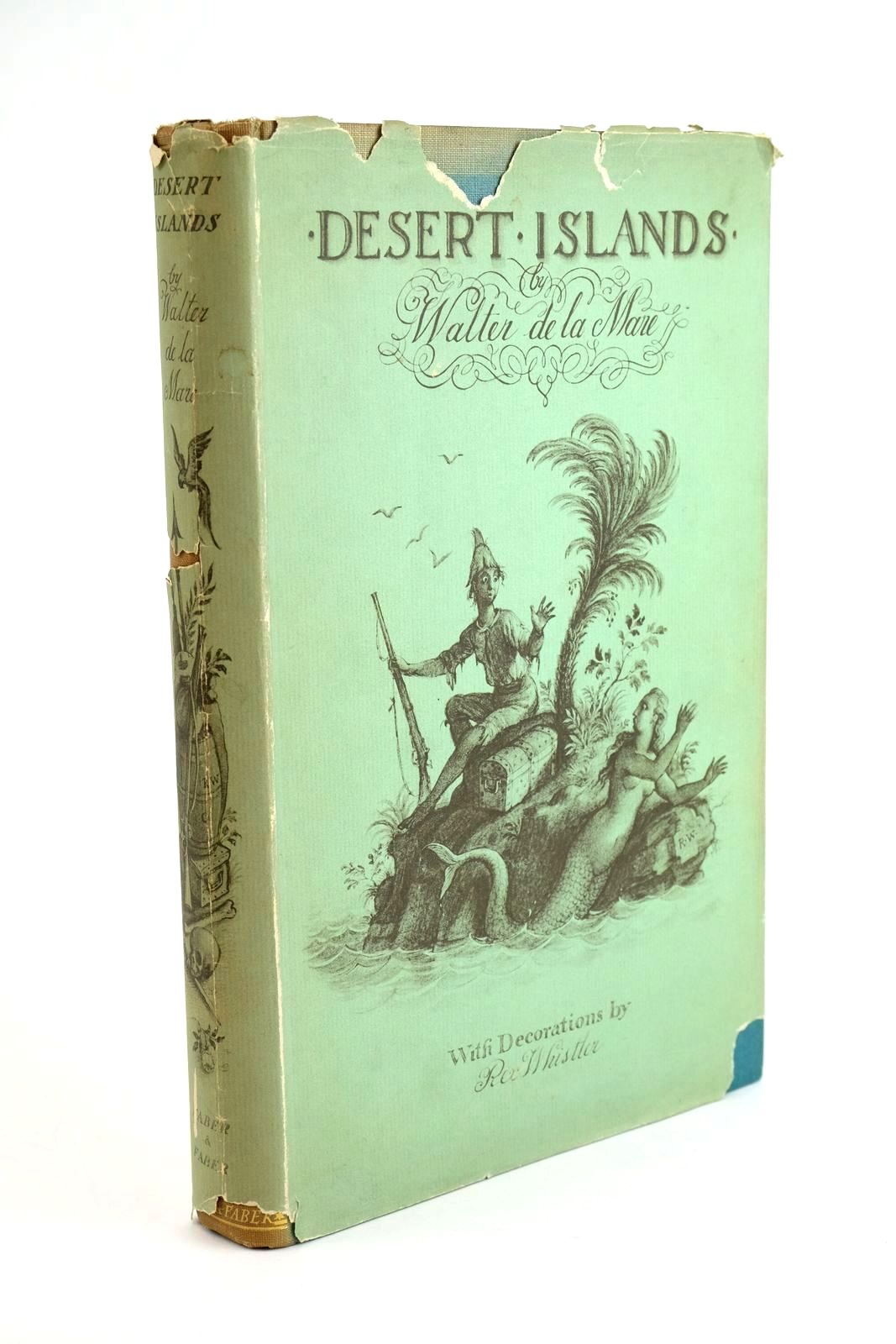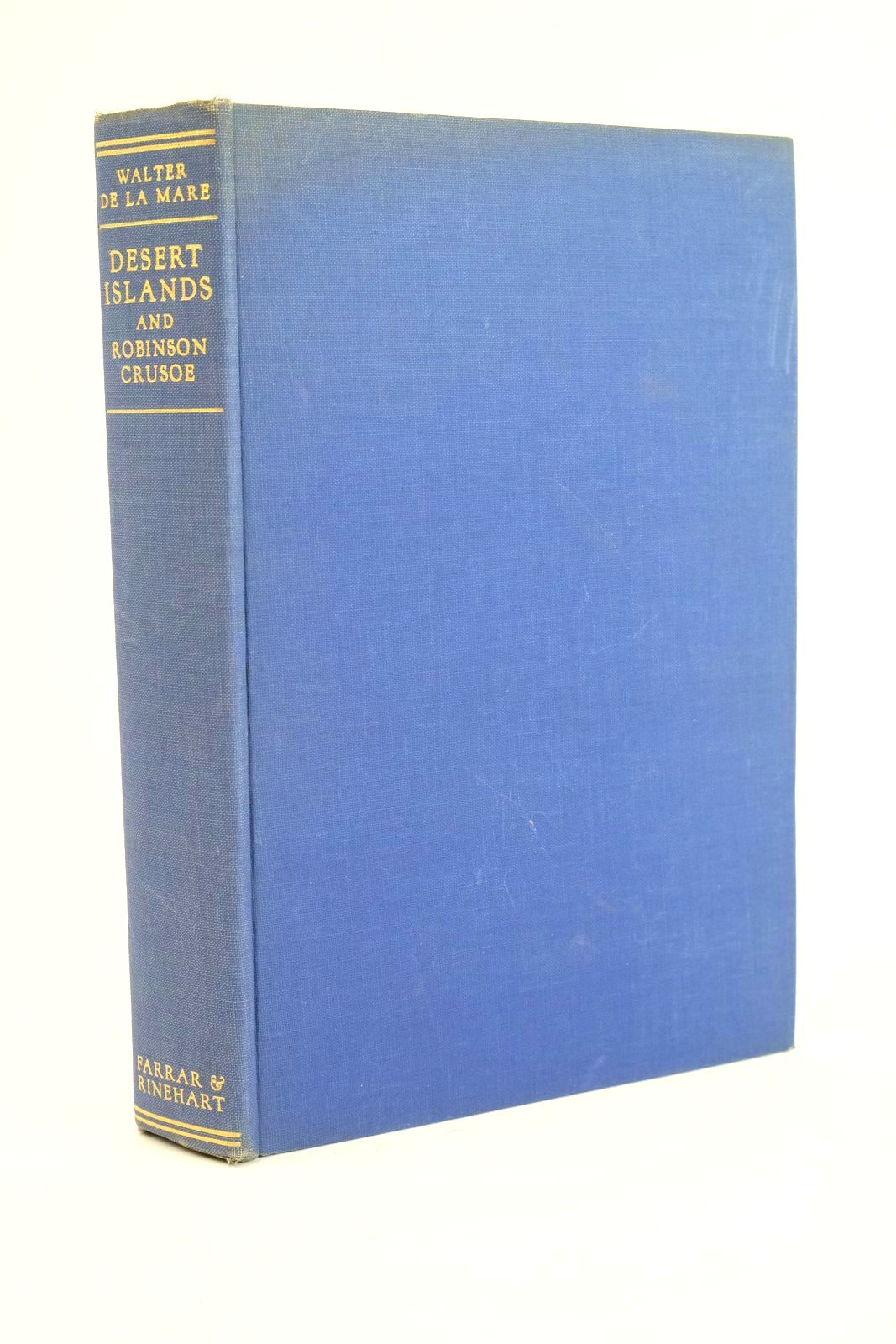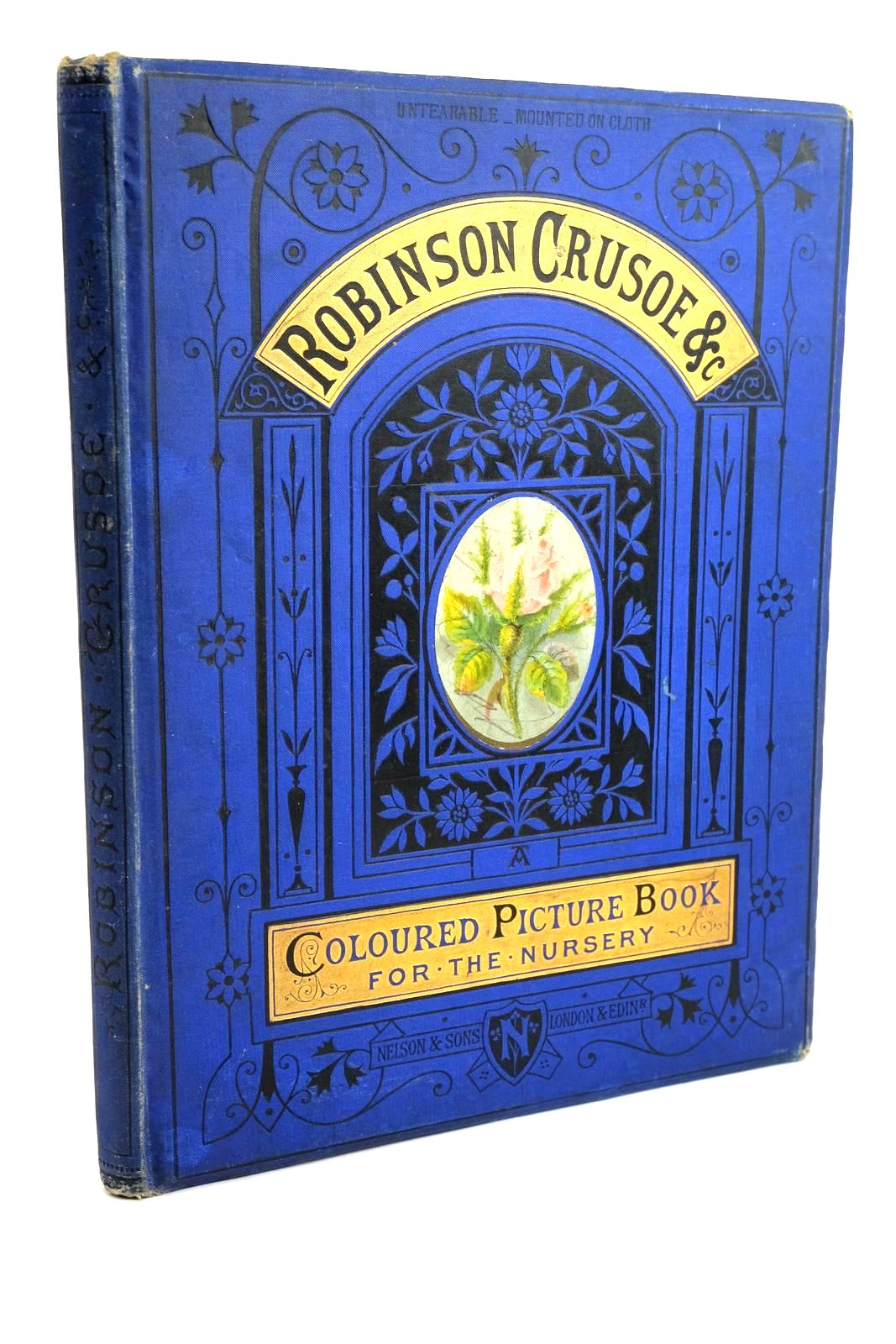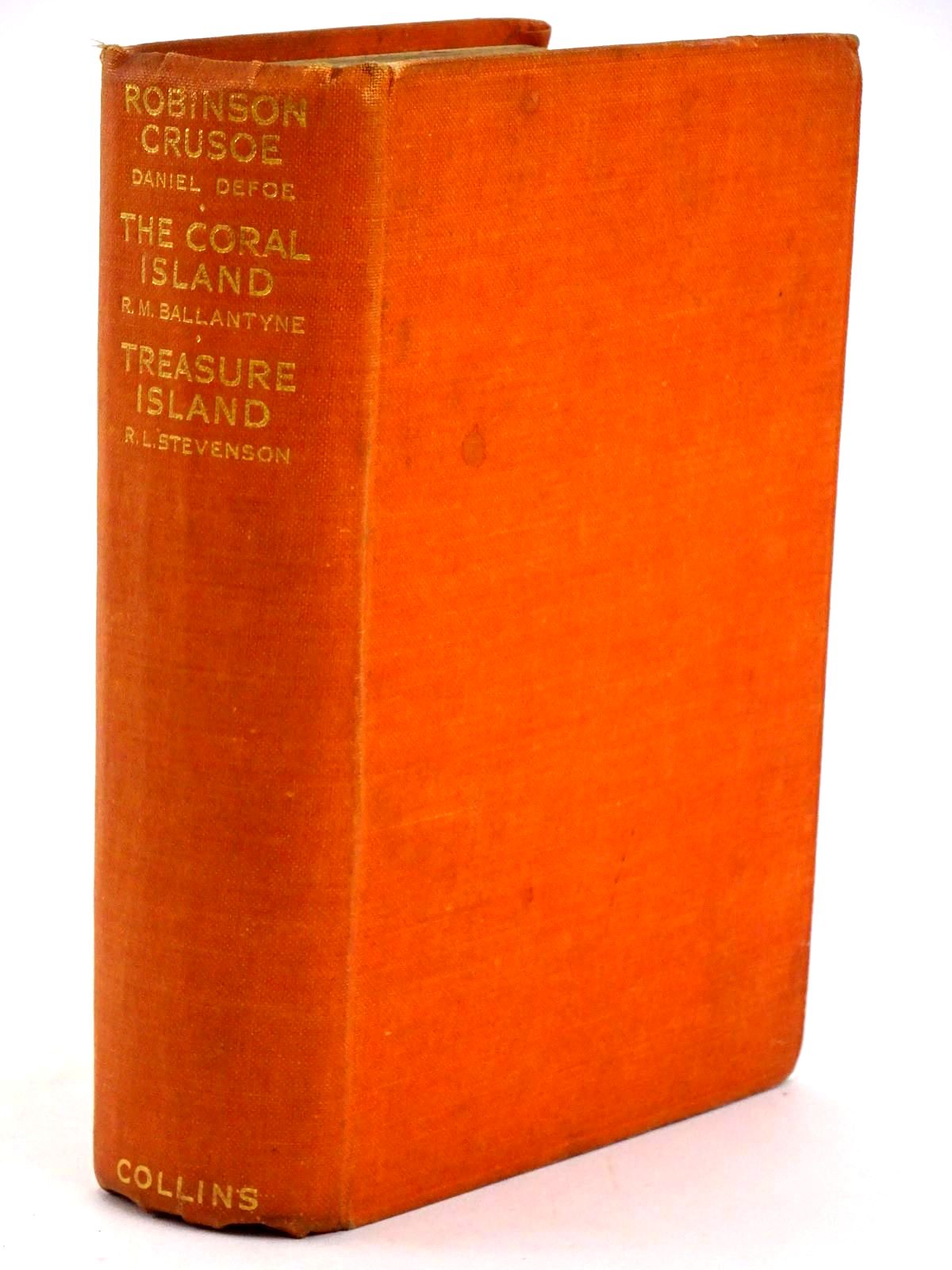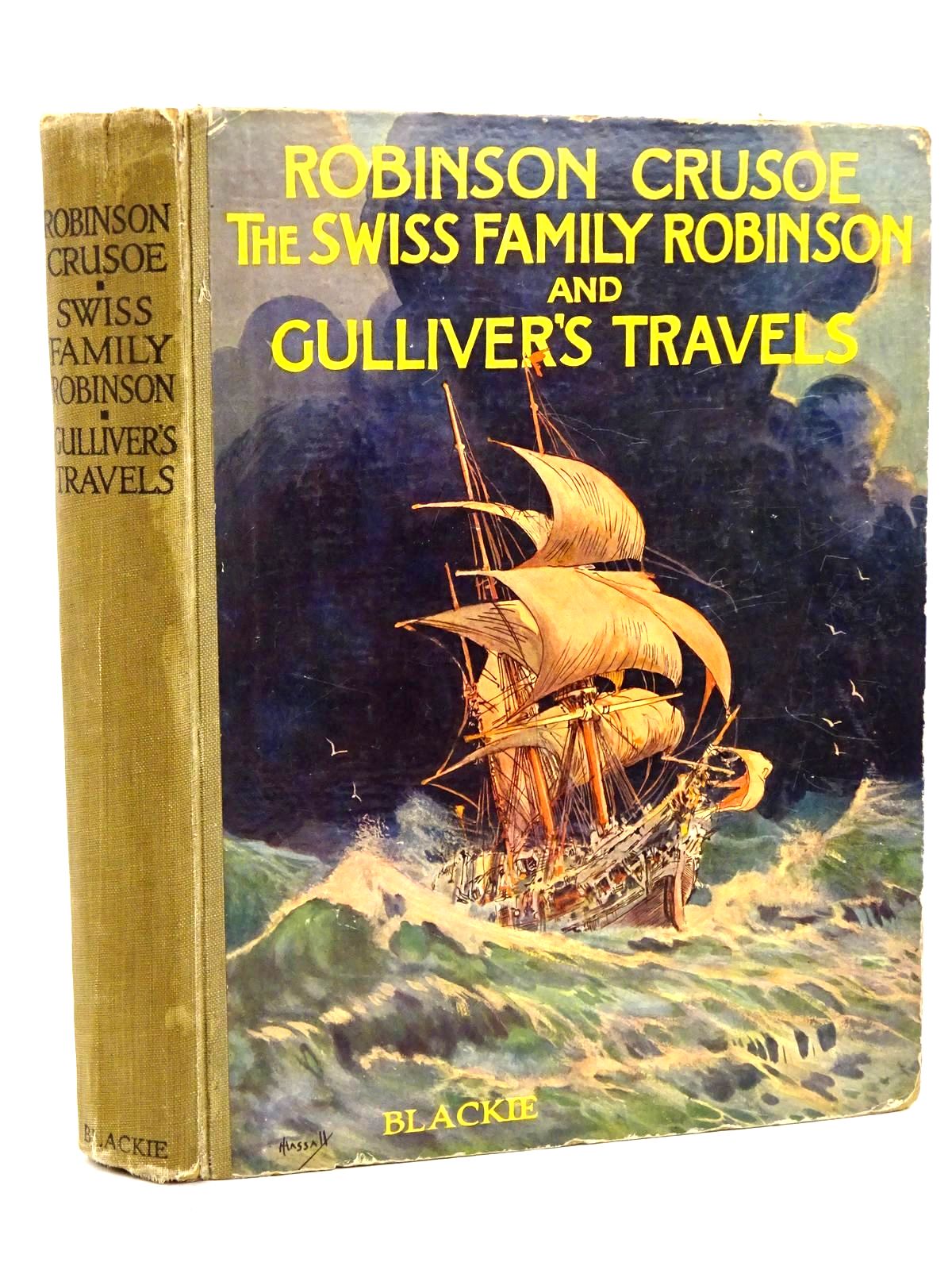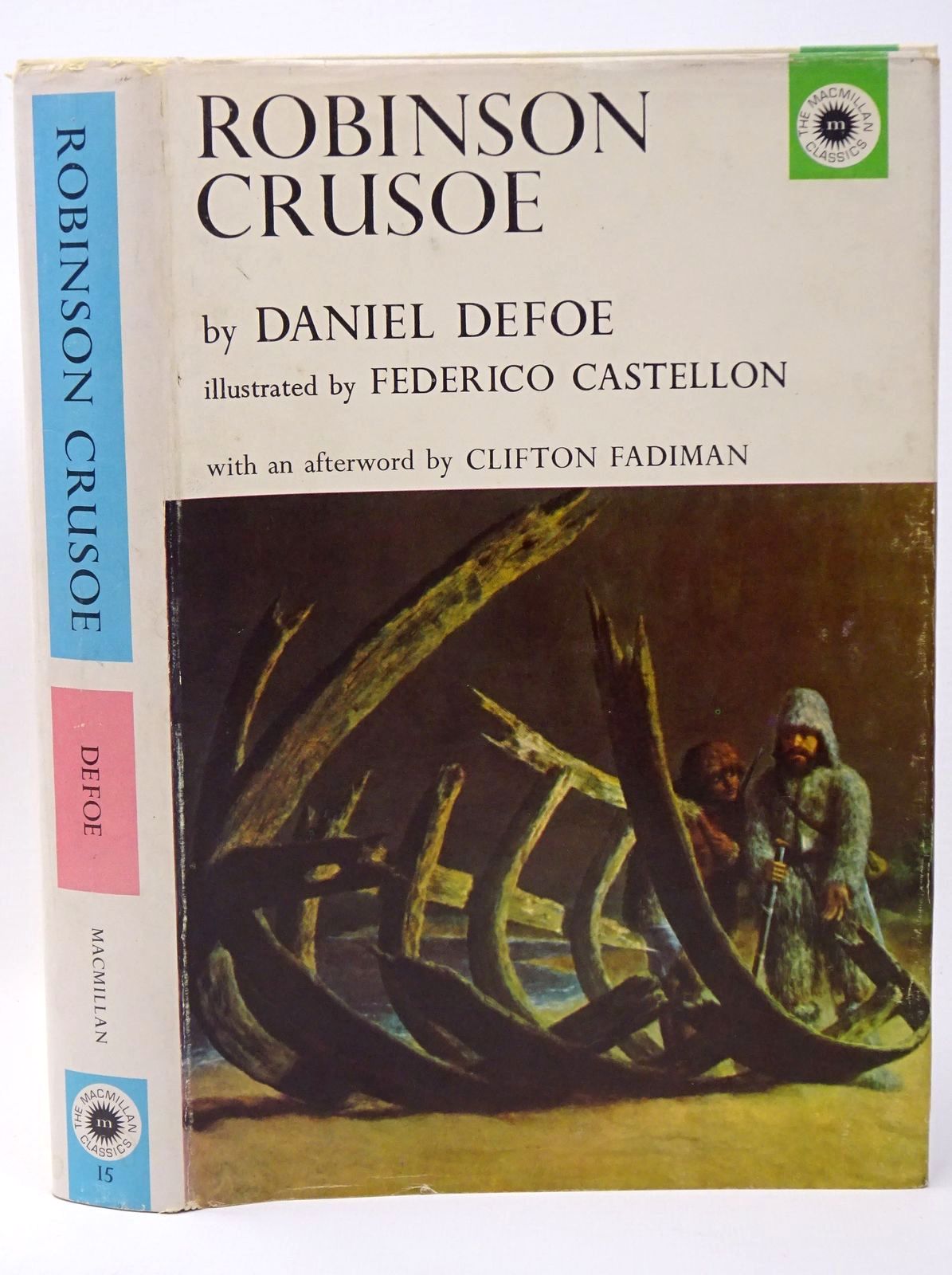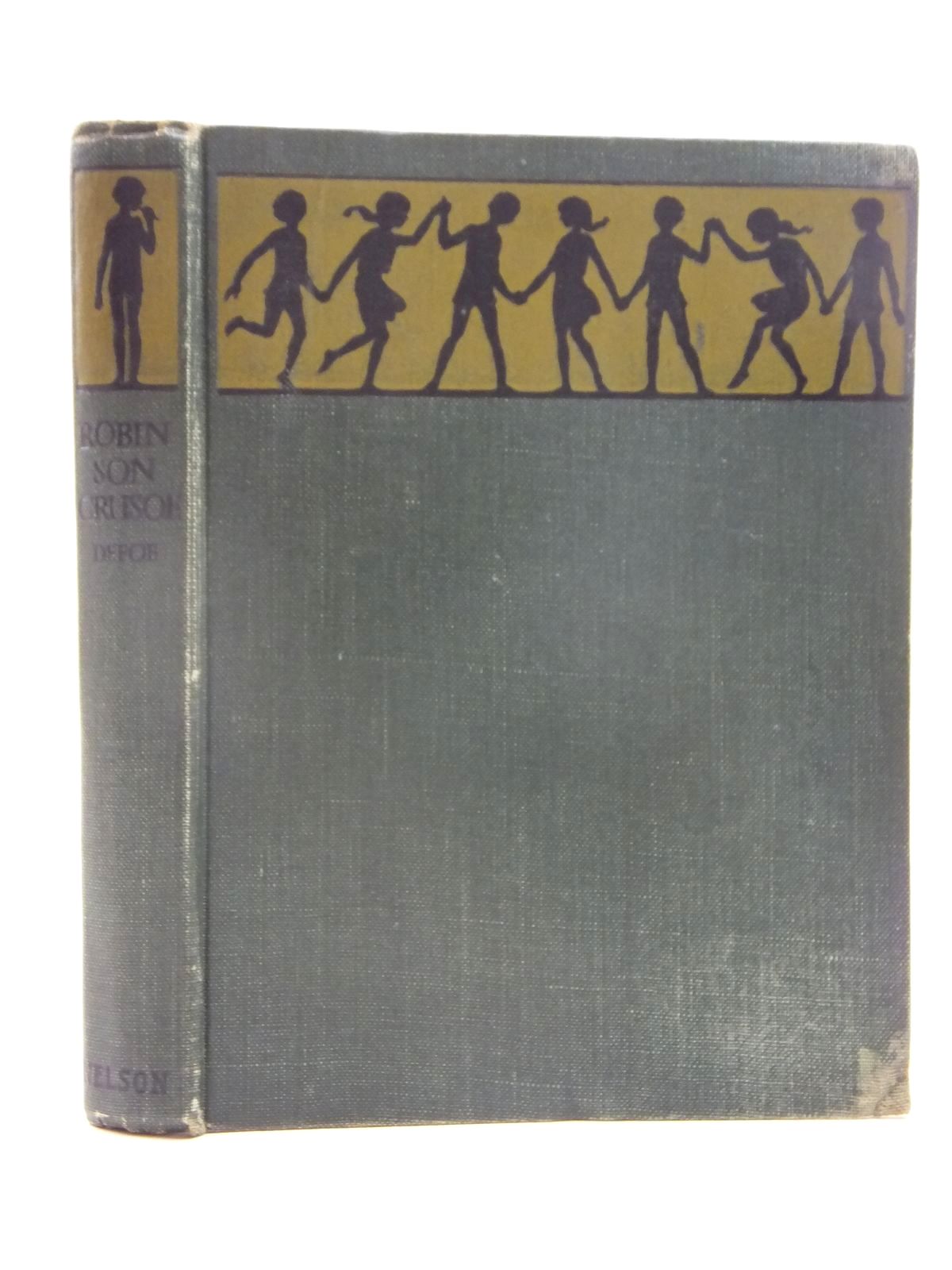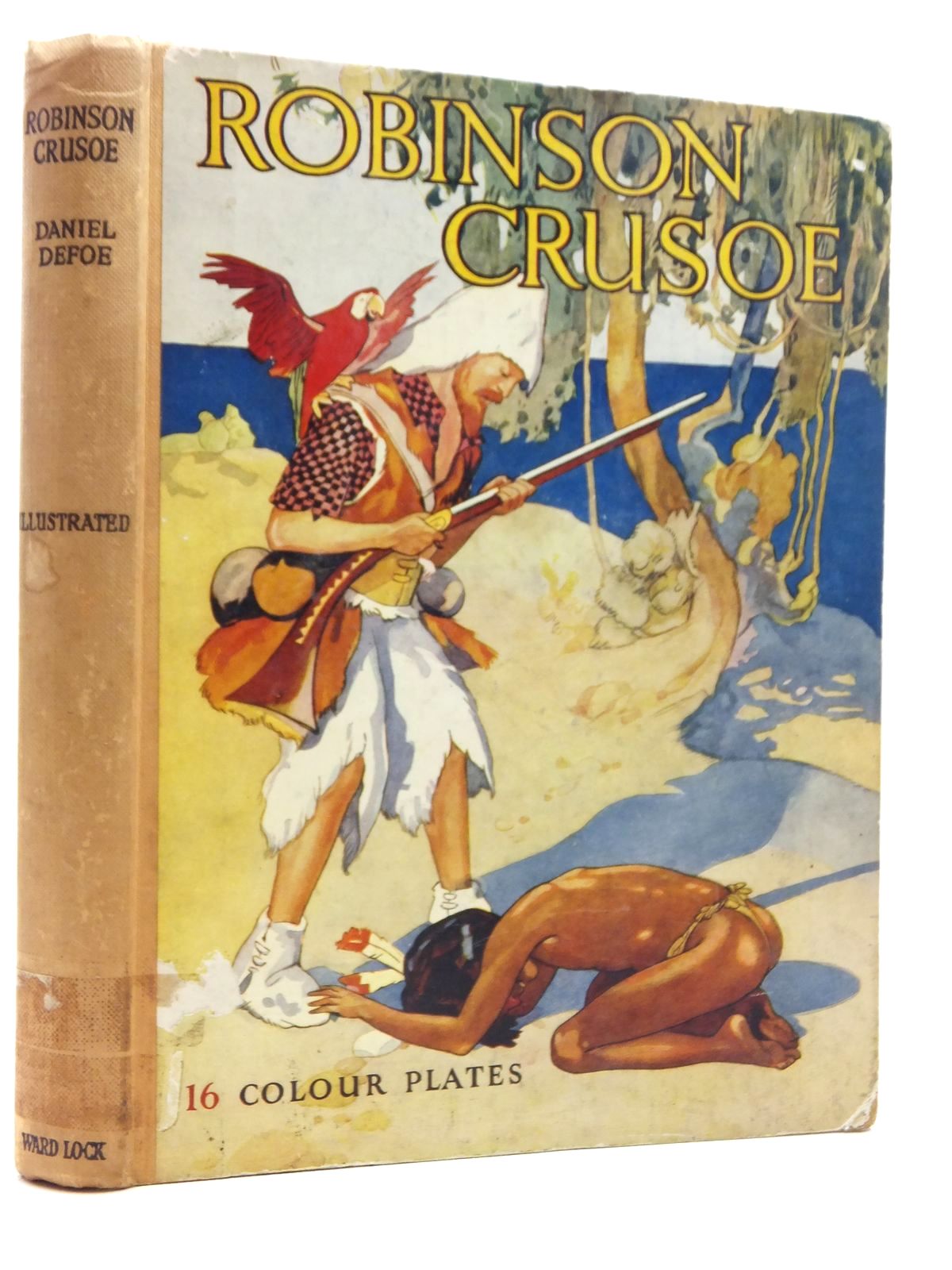Robinson Crusoe by Daniel Defoe
 View current stock of this title
View current stock of this title
Daniel Foe was born in London in 1660, the son of Presbyterian Dissenters and was educated at a dissenting academy at a time when the government did not look kindly on those who practised their religionoutside the Church of England.
 In his adult life he became a successful merchant and though he was able to buy a country estate he was usually heavily in debt. It was during this time that he added the "De" to his name, believing it sounded more gentlemanly or aristocratic. This was also when he became an enthusiastic pamphleteer, publishing many essays generally critical of the political establishment. One such, entitled "The Shortest Way with Dissenters", published in 1702, was a satire directed at the established church and led him to spend three days in the pillory before being sent to Newgate Prison and kept there until he was able to pay his fine. Fortunately for him the Earl of Oxford and Earl Mortimer negotiated his release in return for certain obligations. Defoe then was able to continue with his writing and established a periodical entitled "A Review of the Affairs of France". Some of his writing at this time is now regarded as the first examples of modern journalism and by 1719 having written hundreds of essays, accounts, poems and other texts he decided to turn his hand to fiction.
In his adult life he became a successful merchant and though he was able to buy a country estate he was usually heavily in debt. It was during this time that he added the "De" to his name, believing it sounded more gentlemanly or aristocratic. This was also when he became an enthusiastic pamphleteer, publishing many essays generally critical of the political establishment. One such, entitled "The Shortest Way with Dissenters", published in 1702, was a satire directed at the established church and led him to spend three days in the pillory before being sent to Newgate Prison and kept there until he was able to pay his fine. Fortunately for him the Earl of Oxford and Earl Mortimer negotiated his release in return for certain obligations. Defoe then was able to continue with his writing and established a periodical entitled "A Review of the Affairs of France". Some of his writing at this time is now regarded as the first examples of modern journalism and by 1719 having written hundreds of essays, accounts, poems and other texts he decided to turn his hand to fiction.
As usual he was in debt and took only a few months to write Robinson Crusoe which he thought of as a means of making some money. It was published anonymously in 1719 and its original, less catchy, title was "The Life and Strange Surprizing Adventures of Robinson Crusoe, Of York, Mariner : Who lived Eight and Twenty Years, all alone in an un-inhabited Island on the Coast of America, near the Mouth of the Great River Oroonoque; Having been cast on Shore by Shipwreck, wherein all the Men perished but himself. With an Account how he was at last as strangely deliver'd by Pyrates".
 The tale's fictional character and narrator Robinson Crusoe was credited as its author which led many readers to believe that this was a true account by an actual person. The book was a hit and before the end of 1719 had been reprinted three times.
The tale's fictional character and narrator Robinson Crusoe was credited as its author which led many readers to believe that this was a true account by an actual person. The book was a hit and before the end of 1719 had been reprinted three times.
 It's not hard to understand its appeal, this story of a ship-wrecked sailor, left alone on a deserted island, thrown back on his own resources in an effort to survive and, as a reader, you can't help but ask yourself the questions 'what would I do to survive, how would I cope?' Mind you, with all that Crusoe was able to salvage from the wrecked ship he was able to live a reasonably civilised life, albeit a solitary one at least until, twenty three years into his exile, he found his "man Friday" who was named for the day Crusoe rescued him from some visiting cannibals. Crusoe knew it was Friday since he had kept a calendar by cutting notches in a cross he had made.
It's not hard to understand its appeal, this story of a ship-wrecked sailor, left alone on a deserted island, thrown back on his own resources in an effort to survive and, as a reader, you can't help but ask yourself the questions 'what would I do to survive, how would I cope?' Mind you, with all that Crusoe was able to salvage from the wrecked ship he was able to live a reasonably civilised life, albeit a solitary one at least until, twenty three years into his exile, he found his "man Friday" who was named for the day Crusoe rescued him from some visiting cannibals. Crusoe knew it was Friday since he had kept a calendar by cutting notches in a cross he had made.
Robinson Crusoe continued to be a success and by the end of the 19th century there were more editions of this than of any other book in western literature. They included, of course, illustrated children's versions and there were also translations into French, German, Dutch and Russian, even Maltese. All in all there were over 700 versions. As a child, my own version was a large-format copy with colour plates which I read and re-read. I also remember watching the French black & white television serial on the BBC and going to the cinema to see "Robinson Crusoe on Mars"!
Daniel Defoe tried to capitalise on his success by writing two sequels: The Further Adventures of Robinson Crusoe and Serious Reflections During the Life & Surprizing Adventures of Robinson Crusoe, with his Vision of the Angelic World but they didn't prove to be popular and were quickly forgotten. Nevertheless, the original story continued to exert a fascination with the public and this interest has carried on up to the present day.
 Here are a few such titles, in no particular order:
Here are a few such titles, in no particular order:
- Swiss Family Robinson (film)
- Lost (TV)
- Castaway (film)
- Desert Island Discs (radio)
- Lt. Robin Crusoe U.S.N. (film)
- Robert Crews (book)
- Man Friday (film)
- The Tale of Little Pig Robinson (book)
- Lost in Space (TV)
It shouldn't be forgotten that Daniel Defoe probably based his story on the real-life events surrounding the life of the Scottish seafarer Alexander Selkirk who in 1704 was voluntarily marooned on the island of Mas a Tierra in the Juan Fernandez Archipelago, off the coast of Chile. Unlike Crusoe's twenty eight years, Selkirk spent four years and four months alone on the island before being rescued by the infamous privateer William Dampier. If further evidence may be needed of the permanence of Robinson Crusoe's popularity, in 1966 the Chilean President renamed Mas a Tierra 'Robinson Crusoe Island' in the hope of attracting tourists and at the same time naming one of the other islands in the archipelago 'Alejandro Selkirk Island'.
Oh, and for a true tale of island exile (as opposed to Defoe's fictional one) I thoroughly recommend Selkirk's Island by Diana Souhami.
Contributed by Stewart.
(Published on 17th Dec 2014 )


